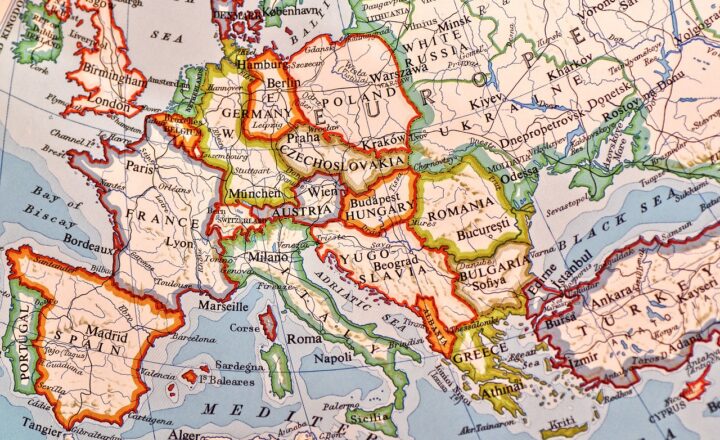The Political Impact of Historical Trade Agreements and Partnerships
November 16, 2024

Trade agreements and partnerships have played a pivotal role in shaping the political landscape throughout history. From ancient routes like the Silk Road to contemporary deals like NAFTA, the evolution of trade agreements not only facilitated economic exchanges but also influenced political relations among nations. This article explores the significant political impacts of historical trade agreements and how they transformed both regional and global politics.
1. Understanding Trade Agreements: Historical Context
Historically, trade agreements emerged as a means to boost economic cooperation, create wealth, and foster political alliances. Trade facilitated the exchange of goods, cultures, and ideas, contributing to the evolution of societies. A few landmark trade agreements include:
- The Treaty of Westphalia (1648): Often cited as the beginning of the modern state system, it ended the Thirty Years’ War and established principles of sovereignty that impacted trade balances in Europe.
- The British Navigation Acts (1651): These laws aimed to expand British trade and maritime power, enforcing trade monopoly and impacting relations with colonies and rival nations.
- The North American Free Trade Agreement (NAFTA) (1994): This modern agreement reshaped trade dynamics within North America and significantly influenced U.S.-Mexico relations.
Understanding these agreements helps frame their political implications, highlighting how they established partnerships that promoted peace, fostered alliances, or even instigated conflict.
2. Historical Trade Agreements and Political Alliances
Trade agreements often laid the groundwork for alliances among nations. The motivations for forming such agreements were diverse, aiming to promote national interests through economic connectivity. Some key examples include:
- The Treaty of Tordesillas (1494): This agreement between Spain and Portugal divided newly discovered lands in the Americas, shaping colonial governance and international relations in the New World.
- The European Economic Community (EEC) (1957): Predecessor to the European Union (EU), the EEC aimed to integrate European economies, fostering strong political ties post-World War II, thereby promoting stability and peace in the region.
- Mercosur (1991): This South American trade bloc aimed to promote free trade and economic cooperation among member states, fostering relationships while attempting to stabilize regional conflicts and tensions.
These agreements illustrate how economic cooperation can contribute significantly to political stability, often turning former rivals into partners while mitigating the risk of conflict.
3. Trade Agreements as Tools for Political Influence
Trade agreements can be wielded as instruments of political influence or leverage in international relations. Countries may use trade to exert pressure on one another or to incentivize favorable political actions. Key examples include:
- The Smoot-Hawley Tariff Act (1930): This U.S. protectionist policy raised tariffs to unprecedented levels, leading to retaliatory measures from other countries, which exacerbated the Great Depression and strained international relations.
- China’s Belt and Road Initiative (BRI): Launched in 2013, this ambitious global development strategy is perceived as a steering tool for China’s foreign policy, fostering trade relationships and increasing its political influence across Asia, Africa, and Europe.
- The Trans-Pacific Partnership (TPP): Although the U.S. withdrew from the TPP in 2017, the agreement was aimed at strengthening economic ties among Pacific Rim countries, serving to counterbalance China’s influence in the region, reflecting how trade can directly impact geopolitical power dynamics.
These cases underline how trade agreements serve not merely as economic frameworks but as pivotal tools in political strategy and international diplomacy.
4. Trade Agreements and Conflict Resolution
Historically, trade agreements have often played a role in conflict resolution, providing platforms for negotiation and diplomacy. By establishing economic interdependencies, nations are less inclined to engage in conflicts that could jeopardize their mutual benefits. Here are examples:
- The Camp David Accords (1978): This agreement between Egypt and Israel, facilitated by the United States, not only ended hostilities but also opened avenues for economic cooperation in the region, showcasing trade’s role in fostering peace.
- The Good Friday Agreement (1998): Although primarily a political agreement to end the conflict in Northern Ireland, it also included provisions for economic cooperation, reflecting how trade partnerships can enhance peace processes.
- Post World War II Trade Agreements: Trade agreements like GATT (General Agreement on Tariffs and Trade) were designed to promote economic cooperation and prevent future conflicts by establishing rules for global trade, fostering a spirit of collaboration between former adversaries.
These examples highlight the transformative power of trade as a diplomatic tool that can facilitate dialogue and help to overcome historical grievances.
5. Critique of Trade Agreements and Social Implications
While trade agreements can create opportunities, critique surfaces concerning their social and economic implications. Critics argue that such agreements can sometimes prioritize corporate interests over local populations, leading to inequality and social unrest:
- NAFTA and Job Losses: NAFTA was criticized for leading to job losses in the U.S. manufacturing sector, creating political backlash and contributing to a rise in anti-globalization sentiments.
- European Union and Sovereignty Issues: The EU has faced criticism for perceived overreach into national politics, with some members arguing that regional agreements undermine national sovereignty, leading to divisions within member states.
- Environmental Concerns: Trade agreements may prioritize economic benefits over environmental protections, causing political movements focused on sustainability and social justice to rise in response.
Debates surrounding these issues illuminate the complexity of trade agreements and their multifaceted political consequences, necessitating a careful review of their structures and goals.
6. Conclusion: The Interplay of Trade and Politics
Trade agreements remain a vital component of international relations, influencing the political dynamics of countries both historically and in contemporary times. The impact of these agreements extends beyond economics, shaping alliances, resolving conflicts, and even sparking political movements. As globalization progresses, understanding the political repercussions of trade agreements will be essential for policymakers and citizens alike.
To navigate the complexities of these relationships, future trade agreements must consider not only their economic outcomes but also their political and social implications, aiming for partnerships that foster sustainable growth and mutual benefits across borders.







